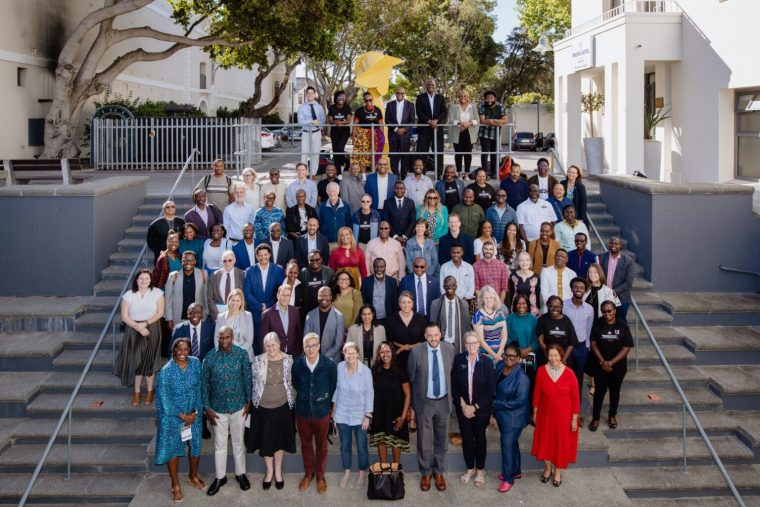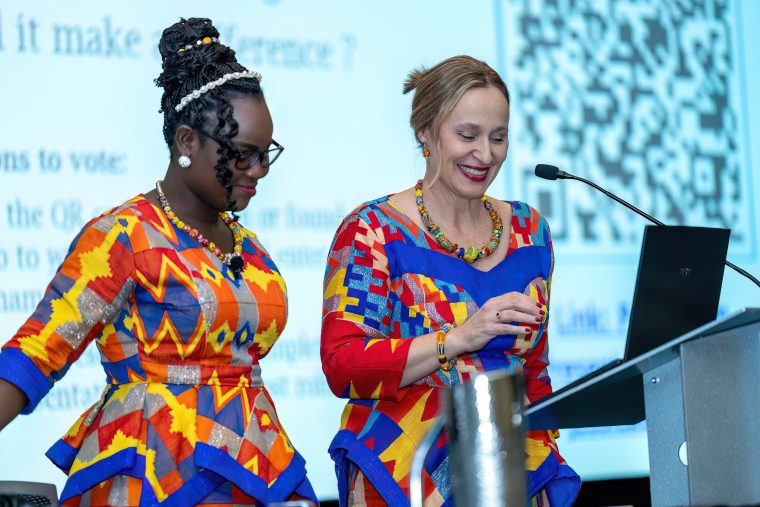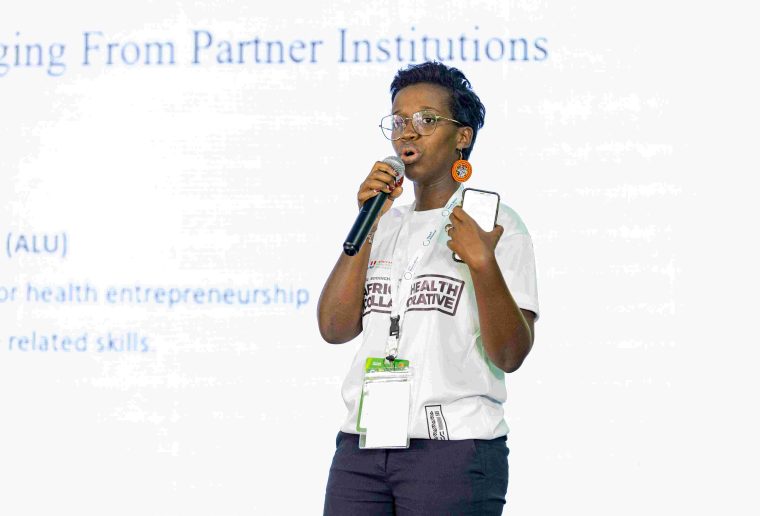Founder: Faith Chuby Labija
The Africa Health Collaborative, in partnership with the Mastercard Foundation, will be welcoming the Health Entrepreneurship (HENT) African Impact Challenge’s second cohort for their upcoming visit to Toronto, where they will continue their implementation phase through activities targeting business development, expanding entrepreneurial networks, and facilitating exposure to potential investors.
The University of Toronto’s Health Collaborative Internal Communications Working Group caught up with the ventures to learn more about the origins of their companies, what they’ve learned to date, and what is coming up next…
ChuChu Softies
While working as a tutor for high school students, Faith Chuby Labija witnessed first-hand the barriers that girls were facing to stay in school. She saw how girls faced disruptions to their activities and often missed out on opportunities that their male counterparts more easily accessed. By and large, the most concerning trend she noted was the health challenges that these girls were suffering from due to period poverty and having limited access to hygienic alternatives..
To combat these challenges, Labija founded ChuChu Softies, which seeks to curb the problem of period poverty by creating eco-friendly and reusable sanitary pads that are affordable and accessible to girls and women. Focused on creating a solution for all, Labija teams up with social impact partners to ensure that pads can be given freely to those who cannot afford them otherwise. ChuChu Softies also acts as a supplier to many social impact organizations to further improve accessibility and reach.
What is the accomplishment to date that your team is most proud of?
In 2022, ChuChu Softies was ranked as one of Ghana’s top 15 promising climate change startups by 3E’s 4 Africa. In the same year, ChuChu Softies was also one of the 15 winners of the African Impact Health Challenge. ChuChu Softies also won first place and a $5000 dollar prize at the Global Business School Network Competition and won the Blacks in Technology Trinidad and Tobago Awards in the Innovathon Pitch at the University of Toronto this August. Labija was nominated for the SME Nigeria under 25 awards among millions of entrepreneurs. This past summer, the company was featured by four institutions, showcasing their impressive growth.
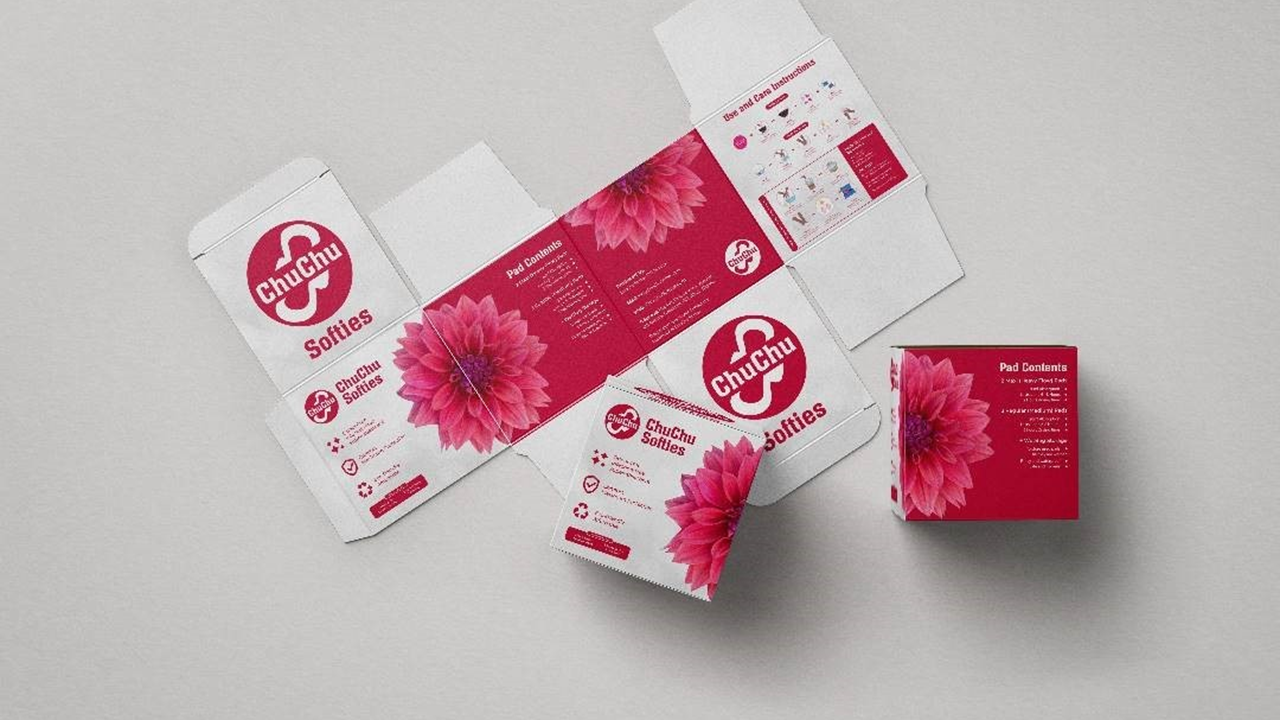
If you could give advice to another founder getting started, what would that be?
“Avoid the pitfall of waiting for the right time to start because it is just an illusion.”
Looking forward, ChuChu Softies has identified the three regions where they will commence operations upon their pending product certification, which will be completed this summer. The venture will launch operations in the Nigerian states of Benue, Kogi and Nasarawa, before expanding outside of the country. Furthermore, the venture is looking to seek and develop partnerships with stakeholders who share their same vision for addressing period poverty to advance gender equity and improve health outcomes.

You can learn more about ChuChu Softies
More News & Events
Skip scroller content
[Health in Africa Series] Health Careers in Africa: West Africa’s Job Market
About L’AINE HR L’AINE HR is a company focused on providing people-oriented solutions and development. As an ISO 9001:2015 certified organization, it serves thousands of clients in both the private and public sectors across various industries including Finance, Health, Media, Telecommunications, Education, Construction, Energy, Manufacturing, and Hospitality. The company prides itself on enhancing the most […]

Candidate Nominations for the ALU Public Sector Fellowship Program
African Leadership University (ALU) is thrilled to share an exceptional opportunity for public sector leaders championing sexual and reproductive health and rights (SRHR) projects. The ALU Public Sector Fellowship, now entering its third year, is a dynamic, 8-month, part-time program designed to empower leaders with essential skills to elevate service delivery and tackle Africa’s pressing […]
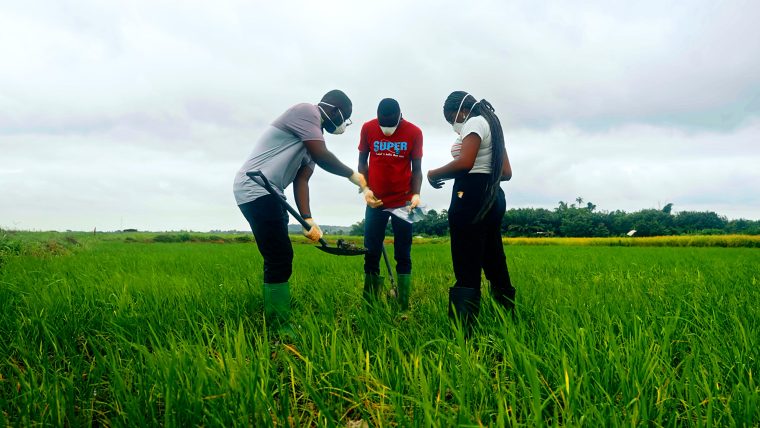
[Watch] Heavy Risk – An Environmental & Occupational Health Documentary
In Ghana’s Shama District, the rice fields of Whin Valley hold immense agricultural potential, providing food and livelihoods to the local community and beyond. But beneath this fertile land, a hidden story unfolds. Three Mastercard Foundation Scholars from the University of Toronto set out to explore how local farming practices and nearby #Galamsey (illegal mining) […]
